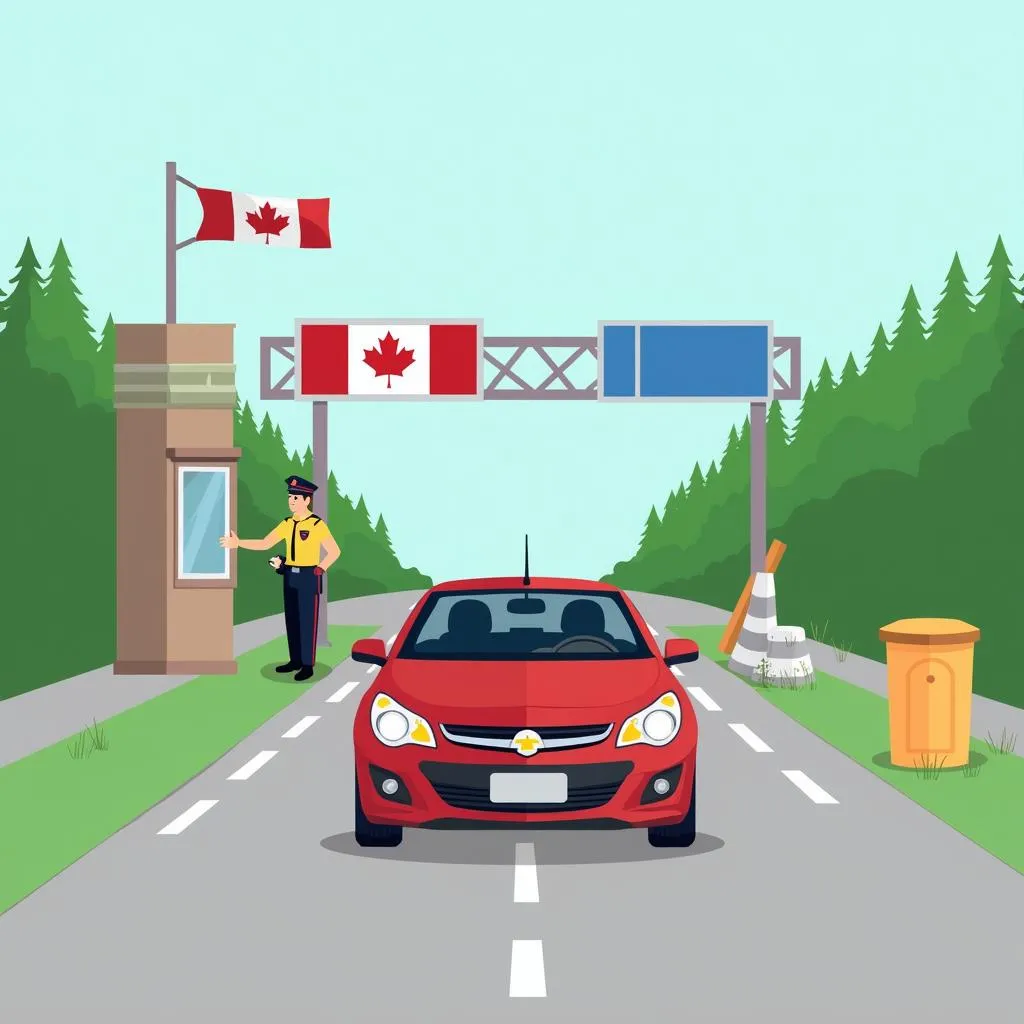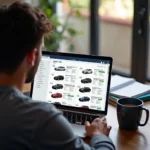Planning a road trip across the border into Canada? Exciting times! Packing for a road trip is always an adventure, but when you’re crossing international borders, it becomes even more crucial to know the rules. You don’t want to get stuck at the border because you’ve packed something you shouldn’t have! As someone who’s passionate about cars and road trips, I can tell you, being prepared makes all the difference. Let’s talk about what you can bring into Canada by car.
Understanding the Significance of Border Regulations
From an auto enthusiast’s perspective, crossing borders with your car is always a special experience. It’s not just about the journey, but also about respecting the regulations of the country you’re entering. Just like how you wouldn’t want someone messing with your car’s engine without proper knowledge, each country has its own set of rules to protect its borders and citizens. Think of it like your car’s electrical system – each component has a specific function, and any disruption can cause problems. Similarly, bringing prohibited items can lead to delays, fines, or even more serious consequences.
From a technical standpoint, these regulations are put in place to safeguard Canada’s agricultural industry, environment, and overall security. Imagine bringing in a foreign plant species that could disrupt the local ecosystem, or worse, carrying a pest or disease that could affect Canadian crops.
Deciphering the Rules: What You Can and Cannot Bring
Here’s a breakdown of items you can generally bring into Canada for personal use without any hassles:
- Personal Belongings: Clothes, toiletries, electronics for personal use, camping gear – you know, the usual stuff you need for a trip!
- Gifts: Bringing gifts for friends or family in Canada? You can bring gifts worth up to $60 CAD duty-free. Just make sure they’re not on the restricted list!
- Alcohol and Tobacco: There are limits on how much alcohol and tobacco you can bring in duty-free. The amount varies depending on your length of stay and the province you’re entering.
- Food Products: Bringing food can be tricky. Generally, processed foods, baked goods, and candies are okay. However, fresh fruits, vegetables, meat, and dairy products often have restrictions. It’s always best to check the Canadian Food Inspection Agency (CFIA) website for the most up-to-date information.
Items you should leave at home:
- Firearms and Weapons: This includes firearms, ammunition, and other weapons like knives and pepper spray. There are strict regulations surrounding firearms, and even bringing them across the border unintentionally can land you in hot water.
- Illegal Drugs: This one’s a no-brainer. Drugs are illegal in Canada, and bringing them across the border is a serious offense.
- Endangered Species Products: Items made from endangered or protected species, such as ivory or certain animal skins, are strictly prohibited.
Navigating Customs: Tips for a Smooth Entry
- Declare Everything: Even if you’re unsure whether something is allowed, it’s always better to declare it. Honesty is the best policy at the border.
- Organize Your Documents: Have your passport, driver’s license, vehicle registration, and any other relevant documents easily accessible.
- Know Your Limits: Familiarize yourself with the duty-free limits for alcohol, tobacco, and gifts.
- Be Prepared to Answer Questions: Border officials may ask you questions about your trip, your belongings, or your reason for entering Canada. Answer truthfully and politely.
 Car crossing the Canadian border
Car crossing the Canadian border
Common Questions About Bringing Items Into Canada By Car
Can I bring my pet dog into Canada with me?
Yes, you can generally bring your pet dog into Canada without quarantine as long as they are healthy and you have the proper documentation. This includes a valid rabies vaccination certificate and a health certificate from your veterinarian.
What about prescription medications? Do I need special documentation?
Yes, it’s essential to bring proper documentation for any prescription medications you are carrying. This includes the original prescription label and a letter from your doctor stating the medication is prescribed to you.
I’m driving a rental car. Are there any restrictions?
If you’re driving a rental car, you’ll need to provide a copy of your rental agreement and a letter of authorization from the rental company stating you are permitted to drive the vehicle into Canada.
Beyond the Basics: Other Important Considerations
While we’ve covered the fundamentals, remember that regulations can change, so always double-check the latest information on the Government of Canada’s website before you travel.
Thinking of exploring Canada’s vibrant cities? Did you know that Autel, a leading provider of automotive diagnostic tools, has a strong presence in Canada? If you’re an auto enthusiast, you might find it interesting to check out their range of products at Autel dealers across the country.
Remember, a well-prepared traveler is a happy traveler. By following these tips and staying informed, you can focus on enjoying the open road and the incredible experiences that await you in Canada.
Explore More About Car Diagnostics and Travel
Need help with installing diagnostic software for your car? We’ve got you covered! Our team of auto repair experts is available 24/7 to assist you. Contact us on Whatsapp at +84767531508, and we’ll be happy to help you get back on the road. Safe travels!

